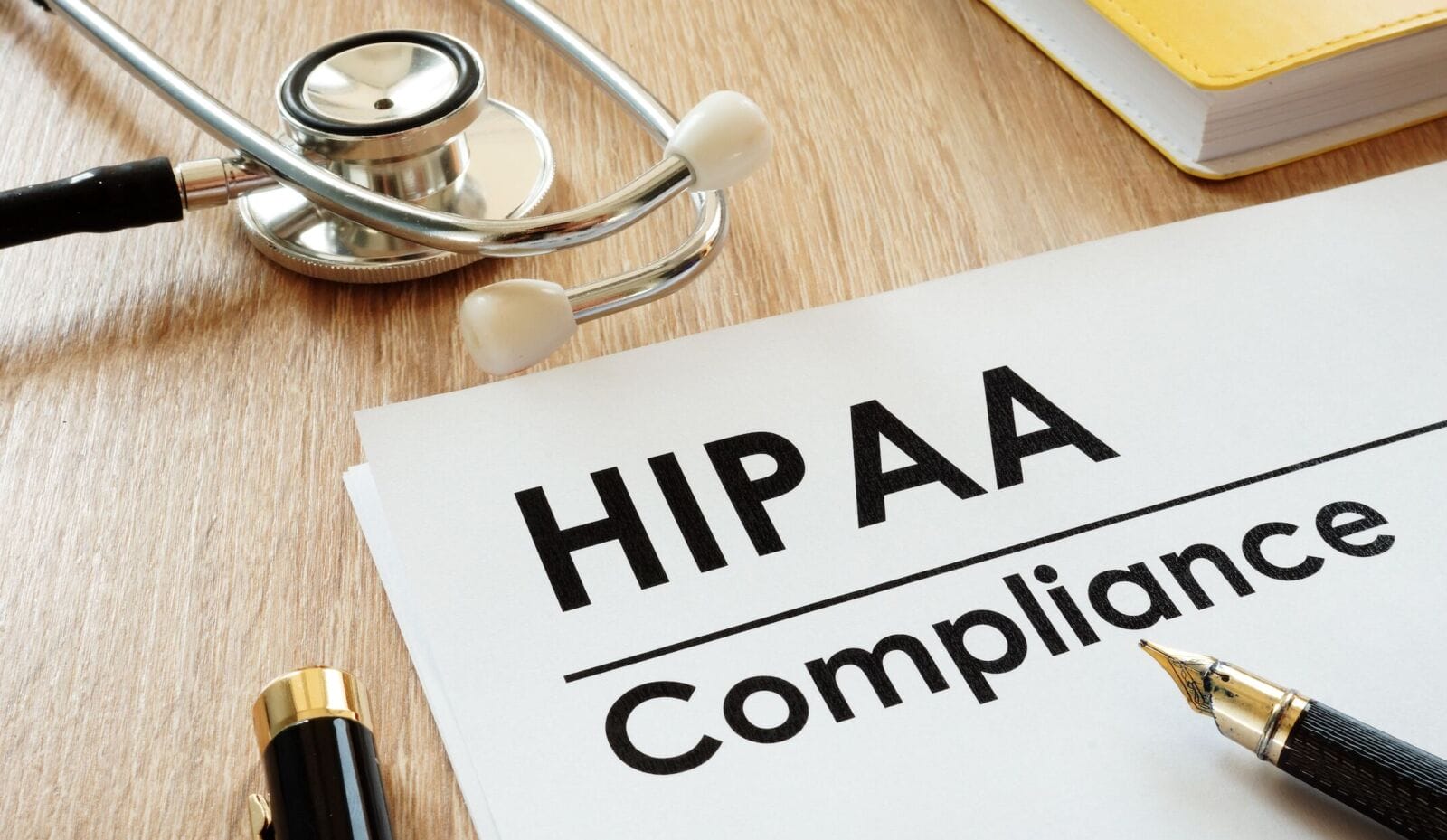Patient health information is one of the most sensitive types of data that the healthcare industry is dealing with. As cyber threats, human error, and insider abuse are on the increase, privacy and data security are no longer a matter of choice but a legal obligation. It is here where HIPAA Compliance comes in.
Although it might appear that only legal and IT departments should be concerned with it, all employees—including receptionists, nurses, and billing staff—have a significant part to play. When employees are educated, trained, and cautious about how they handle information about patients, they prevent expensive breaches and establish trust among the patients.
In this guide, we will explain in detail what staff members can do proactively to comply with HIPAA guidelines, why trainings are important and how adopting easy every day habits can go a long way.
LOCAL NEWS: Phoenix housing market outpaces national trends again in 2025
INDUSTRY INSIGHTS: Want more news like this? Get our free newsletter here
Why HIPAA Compliance Matters
The Health Insurance Portability and Accountability Act of 1996 (HIPAA) dictates regulations to protect the Protected Health Information (PHI). This consists of information such as health conditions, care, or payment methods that can help in identifying a patient.
The law applies to:
- The health practitioners (hospitals, doctors, clinics)
- Health plans (insurance companies, HMOs)
- Healthcare clearinghouses
Business partners (billing services, IT vendors etc.)
What Employees Need to Understand About HIPAA
Most of the HIPAA violations are the result of error- not intent. That is why awareness is an important component of HIPAA Compliance. Employees are supposed to know:
What Is Protected Health Information (PHI)?
PHI incorporates any health information that is able to identify a person- this includes names, birth dates, medical records, bills etc. PHI may be in hard copy files, emails, phone calls and computer systems.
There are two major rules staff should understand:
The HIPAA Privacy Rule
This controls the usage and disclosure of PHI. It restricts access to patient information and demands patient consent to non-standard uses.
The HIPAA Security Rule
This regulation is concerned with the issue of safeguarding electronic PHI (ePHI). It involves administrative, technical and physical measures to avoid unauthorized access or breaches.
Without understanding these rules, staff can unintentionally make costly mistakes.
Why Employee Involvement Is Critical
A company can have encrypted systems, secure servers and strict policies, but one false step, such as an email sent to the wrong person or information about a patient discussed in a crowded place, is enough to cause a breach.
According to a report, more than 133 million records were compromised in 2023, and the majority of those were not hacked; they were breached because of internal negligence.
That’s why the front line of defence is the people inside the organization. Every employee who knows what their duties are under HIPAA contributes to the reduction of risk.
HIPAA Compliance Training: Why It’s the Starting Point
Good HIPAA training will help employees in knowing how to implement HIPAA regulations in practice. The training must not be limited to theory only, but must also offer situations, examples and well-defined policies specific to the training organization. HIPAA training with self-attestation doesn’t keep learners engaged, that’s why organizations need to prioritize engagement, accountability and documentation.
ComplianceJunction leads the HIPAA training sector with practical, user-focused modules designed for healthcare staff.
Staff compliance training should meet industry standards—accreditation helps ensure that.
If your team is getting outdated or too generic training, it will be unprepared to fight the new challenges like phishing, ransomware, and data leakage by mobile devices. HIPAA trainings should now include dedicated modules to help identify phishing and ransomware.
Everyday Steps Employees Can Take
HIPAA can be confusing, but it is simple to execute compliance daily. The following are some of the habits that staff should embrace:
1. Avoid Public Conversations About Patients
A casual remark about the condition of a patient in the hallway or a cafeteria can be a violation. Discussions about PHI should only happen in secure, private areas and with people who are authorized to be involved in the patient’s care.
2. Always Verify Before Sending Information
Always verify the recipient’s information before sending any email containing PHI. A moment of caution can prevent a costly data breach.
3. Use Strong Passwords and Lock Devices
PHI-accessing devices should be secured using secure passwords. The workers are also supposed to:
- Lock their screens when stepping away.
- Avoid using shared or public computers.
- Report lost or stolen devices immediately.
4. Access Only What You Need
According to HIPAA, employees are only expected to access only the minimum information needed to perform their work. It is an obvious violation to browse through a file of a patient out of curiosity.
5. Report Mistakes or Suspicious Activity
In case you mistakenly send data to the wrong individual, or notice a colleague misusing PHI, inform it immediately. The early disclosure may minimize the harm and demonstrate to regulators that your organization acted appropriately.

Understanding the HIPAA Compliance Checklist
The checklist can assist the employees and managers to monitor the main requirements. Such lists usually contain:
- Completion of annual HIPAA training
- Physical security checks (locked cabinets, shredders)
- Secure email policies
- Documentation of access to patient data
- Regular audits and policy reviews
Not everything in the checklist might be the responsibility of the employees, but knowing their part in it would help to make sure that nothing goes under the radar.
Why Self-Attestation Isn’t Enough
Most training programs are based on the checkbox method, where employees just state that they have read policies without any interaction or testing. This does not foster a long term knowledge.
Rather than this, the training must incorporate:
- Interactive elements
- Scenario-based learning
- Knowledge checks
- Regular refreshers
This is where resources like free HIPAA training can come in handy, particularly for smaller organizations that may want a starting point.
How to Keep Employees Informed and Involved
Making HIPAA awareness a culture in the workplace is one of the best ways of ensuring compliance.
1. Post Reminders
Such habit-reinforcing reminders as “Do Not Discuss PHI Here” and “Lock Your Screen” placed near communal working stations can be effective and non-obtrusive.
2. Hold Regular Training Refreshers
HIPAA is not a once in a lifetime affair. Employees require frequent updates, particularly, with the development of new threats and regulations. A lot of the violations occur due to the fact that a person has forgotten the rule or was not aware of a newly set change.
3. Create a Feedback-Friendly Environment
When employees are afraid to report errors, then the breaches will remain unreported. Promote open communication and appreciate honesty. This assists in creating a culture of shared responsibility in the workplace.
When Audits Come: Be Prepared
HIPAA does not only anticipate compliance, it inspects it. A HIPAA compliance audit can happen randomly or after a reported breach. Employees should know about the meaning of audit and what to do when faced with it.
What can you do to be audit-ready?
- Know where policies are located
- Keep records of training completion
- Understand how your role handles PHI
- Be honest and cooperative with auditors
Being prepared for a HIPAA compliance audit shows commitment to security.
Leverage External Resources
A lot of organizations require external assistance to keep them in line. HIPAA Guide provides the latest news in the world of HIPAA, which is particularly valuable to smaller teams or clinics that lack an internal compliance department.
One useful service is their free HIPAA compliance training, designed to be accessible while still providing essential knowledge. It is perfect for hiring new workers or providing refresher training.
Real-World Consequences: Why It’s Serious
HIPAA fines are not mere jokes; they entail big fines and humiliation. In 2022, there was a breach of more than 3 million people, and Banner Health paid 1.25 million dollars. And the worst bit of it all? The initial cause was one phishing email.
Other key facts:
- The average cost of a healthcare data breach in 2023 was $10.93 million—the highest across all industries.
- Nearly 60% of HIPAA breaches involved insiders or human error.
These figures indicate that despite the availability of the most advanced technology, without the training and alertness of the employees, organizations are at threat.
And bigger loss? Patient trust.
FAQs
What is the minimum penalty for HIPAA violations?
The fines can vary as the lowest is 100 dollars per violation, and it may be higher based on the extent of negligence. The highest fine per category of violation is $1.5 million a year.
Does HIPAA apply to private individuals?
No. HIPAA only applies to covered entities (like providers and insurers) and their business associates. HIPAA standards do not apply to private citizens unless they have a job in the medical field.
Is gossiping a HIPAA violation?
Yes. Disclosing PHI, even in a casual way, to an unauthorized individual is a breach, even though it was not in a malicious way.
Who should a breach of HIPAA be reported to?
It is advisable to report the breaches to the compliance officer of your organization. The Department of Health and Human Services (HHS) also has to be informed about serious breaches.
Conclusion
No matter how advanced your systems are, employee behaviour makes or breaks your compliance with HIPAA guidelines. Regularly staying updated with HIPAA education, such as free HIPAA compliance training, will prevent expensive errors and save your organization millions.
Training is a huge factor, but it must be continuous, engaging and documented. Resources like the free HIPAA training at HIPAA Guide help ensure that teams are equipped with the knowledge they need to protect patient data.




